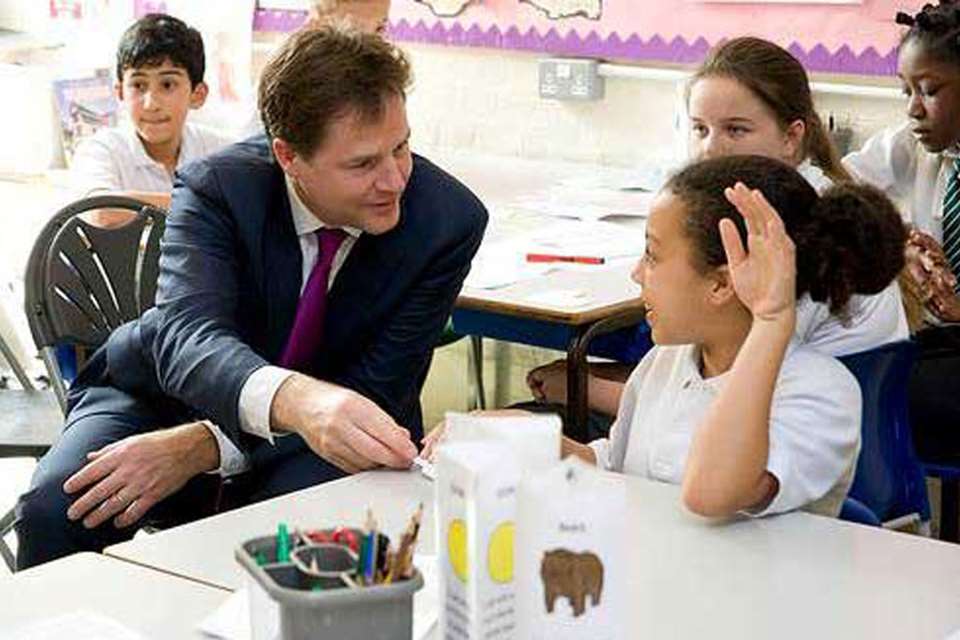'Principled Non-compliance’: an idea whose time has come?
Dr Richard House
Wednesday, April 23, 2014
Dr Richard House argues that the decision of the teaching unions to speak out against recent Government moves could prove a turning point for the early years sector.

It has recently been more than a full-time job keeping up with the breathless speed of unfolding events in England’s early years sector.
A number of recent policy announcements have left much of the field horrified. To mention just four examples: first, there’s the extraordinary decision to introduce baseline testing for four-year-olds in the face of total opposition from the sector; secondly, the Government’s confirmation that it will not go ahead with the widely supported training recommendations made by the widely respected Professor Cathy Nutbrown; thirdly, Ofsted head Michael Wilshaw’s recent letter to Early Years inspectors demanding an increased focus on teacher-led instruction as a preparation for ‘school readiness’; and fourthly, the recent Ofsted Early Years Report summarily denouncing the existing quality of England’s early provision, and proposing, incredibly, that school would be the best place for disadvantaged two-year-olds.
For some of us, the sheer arrogance of the current political regime, with its riding roughshod over professional opinion and the research evidence, is breathtaking, even for wizened old campaigners like myself.
But apart from the ongoing galvanising activities of the Too Much Too Soon campaign, it is the sudden involvement in these controversies of the teaching unions, in the form of the National Union Teachers (NUT) and the Association of Teachers and Lecturers (ATL), which is perhaps of most note – and to be hugely welcomed in our increasingly beleaguered field.
The recent NUT Easter conference has picked up on the controversial notion of 'Principled non-compliance' (or PNC - see below) by passing a strongly worded motion (Motion 46), voting unanimously to support the NUT executive investigating a programme of principled non-compliance with the new baseline assessment for four-year-olds.
This development is pretty much unprecedented, and shows that teachers have reached their limit in simply accepting the imposition of ideologically driven policies that they know will harm the very children whose development they have a professional responsibility to support and enhance.
Principled non-compliance is a notion that I developed six years ago in relation to the then proposed statutory regulation of the psychological therapies. Essentially, PNC refers to professionals invoking the age-old Hippocratic Oath of ‘Do No Harm…’ to support their refusal to comply with Government impositions which professionals know will harm their clientele – in this case, the young children they work with.
This move follows a new report by the ATL that concluded that childhood is being “eroded” as pupils as young as four are forced into an increasingly stressful 10-hour school day.
Several weeks ago, the NUT’s Jess Edwards and I co-organised a Daily Telegraph press letter signed by approaching 250 educationalists (including such notables as Philip Pullman, Neil Leitch, John Coe, Christine Blower, Professors Penelope Leach, Janet Moyles, Jayne Osgood and Michael Rosen, and Sue Gerhardt), and which challenged head on the recent pronouncements on early learning emanating from Ofsted’s Sir Michael Wilshaw.
The letter, which we titled ‘England’s “Paradigm War” for the Heart of Childhood’, outlined Wilshaw’s ‘uninformed determination to dragoon England’s young children into unconscionably early quasi-formal learning…, [thus] setting up many for failure at a very young age’. Maintaining that England’s Early Years Education is safe neither in the hands of Ofsted nor of the Department for Education, we suggested that the Government may well be ‘precipitating the first tidal wave of professional “principled non-compliance” with Government policy that our education system has known in living memory’.
I’m known for being a strong critic of Government early years policy-making, stretching back the late 1990s and the introduction of the Curriculum Guidance for the Foundation Stage. Being a campaigning critic has often been a somewhat lonely furrow to plough in a sector, which, until recently, has been notable for its routinely uncritical acquiescence to governmental statutory impositions upon professional pedagogical practice.
Yet in recent months this has all changed – and with breathtaking rapidity. A string of organisations which would previously have been very careful not to express anything remotely construable as critical of government policy are now joining together in a united front to challenge current policies that are pretty much universally believed to be developmentally inappropriate and harmful to many young children. This is due in no small part to the leadership and formidable organising ability shown by Save Childhood Movement CEO Wendy Ellyatt, and her rare talent in bringing together a richly diverse range of opinion under the banner of the ‘Too Much Too Soon’ movement in a way that the Open EYE campaign (which I co-founded) never managed to achieve.
To conclude, I would venture that the DfE urgently needs to find the maturity to openly ponder on just why it is that what has previously been a largely meek and compliant Early Years field is now reacting in this way – to the extent of even suggesting a mass campaign to defy government statutory impositions. Will these new challenges be met with anything more than the usual on-message, robotic response from a DfE ‘spokesperson’ offering a mixture of anodyne, evidence-lite assertions and authoritarian, disciplining threats – thus (as usual) completely failing to address the substance of the concerns that are now erupting in unison across the sector? I would like to think that some kind of Damascene conversion towards such mature, non-defensive openness in the Department for Education were possible – but based on many years of frustrating campaigning in this duplicitous policy-making world, it gives me no pleasure at all to conclude by admitting, with heavy heart, that I'm not holding my breath.
- Richard House is a trained Steiner Kindergarten teacher, currently lecturing in Early Childhood at the University of Winchester, and is a founder-member of the Save Childhood Movement, Early Childhood Action and the Open EYE campaign (2007–12). He edited the best-selling book 'Too Much, Too Soon?' (Hawthorn Press, Stroud, 2011).








